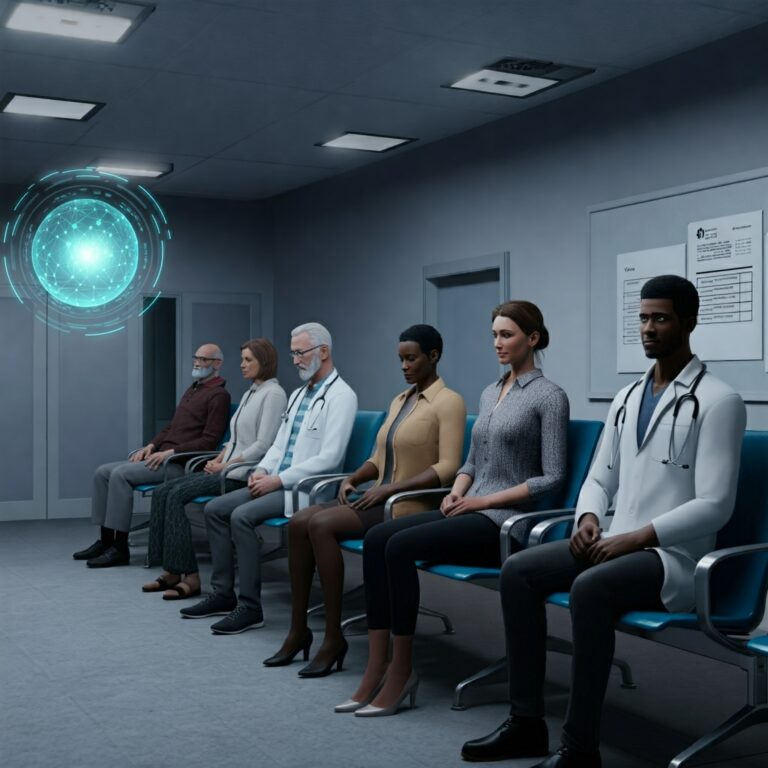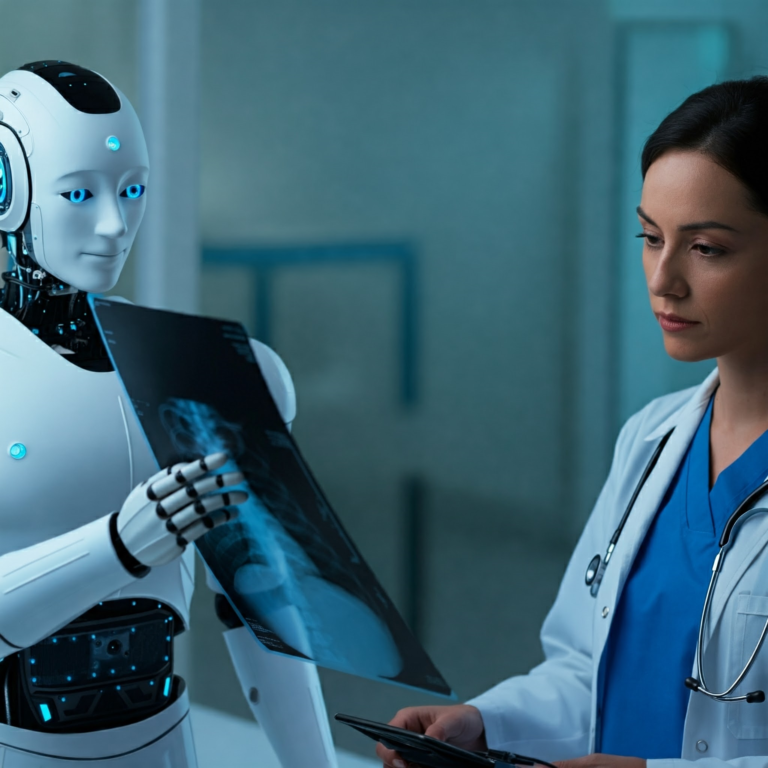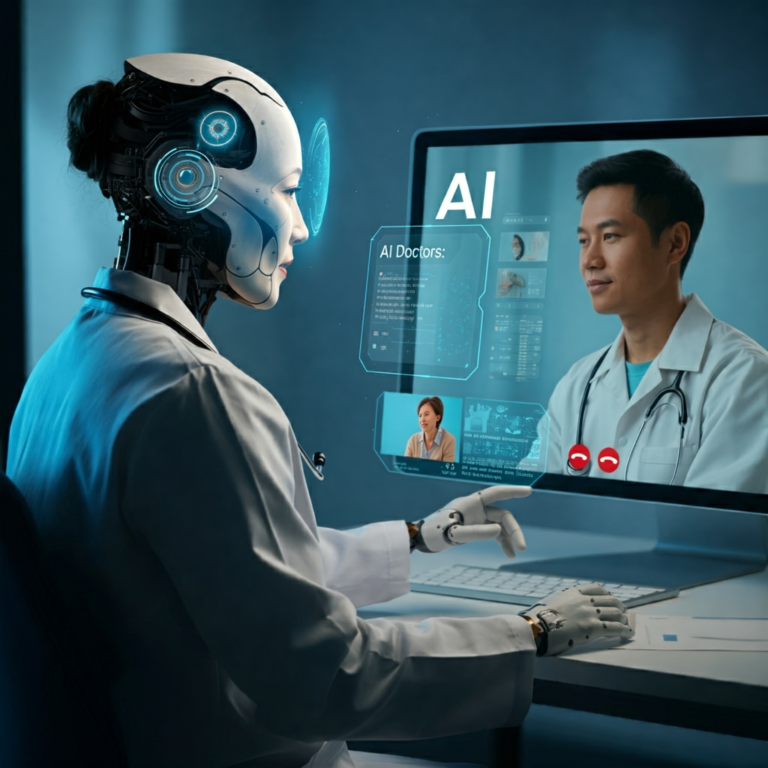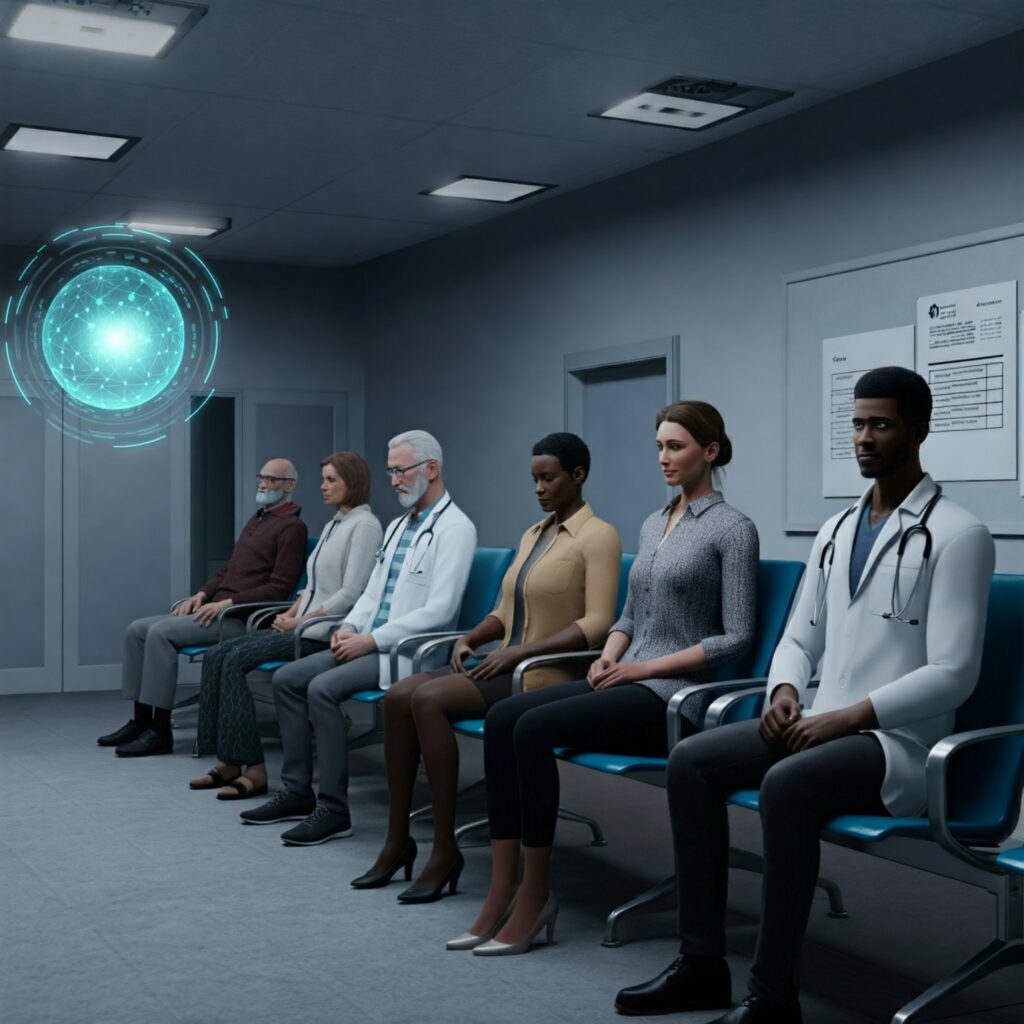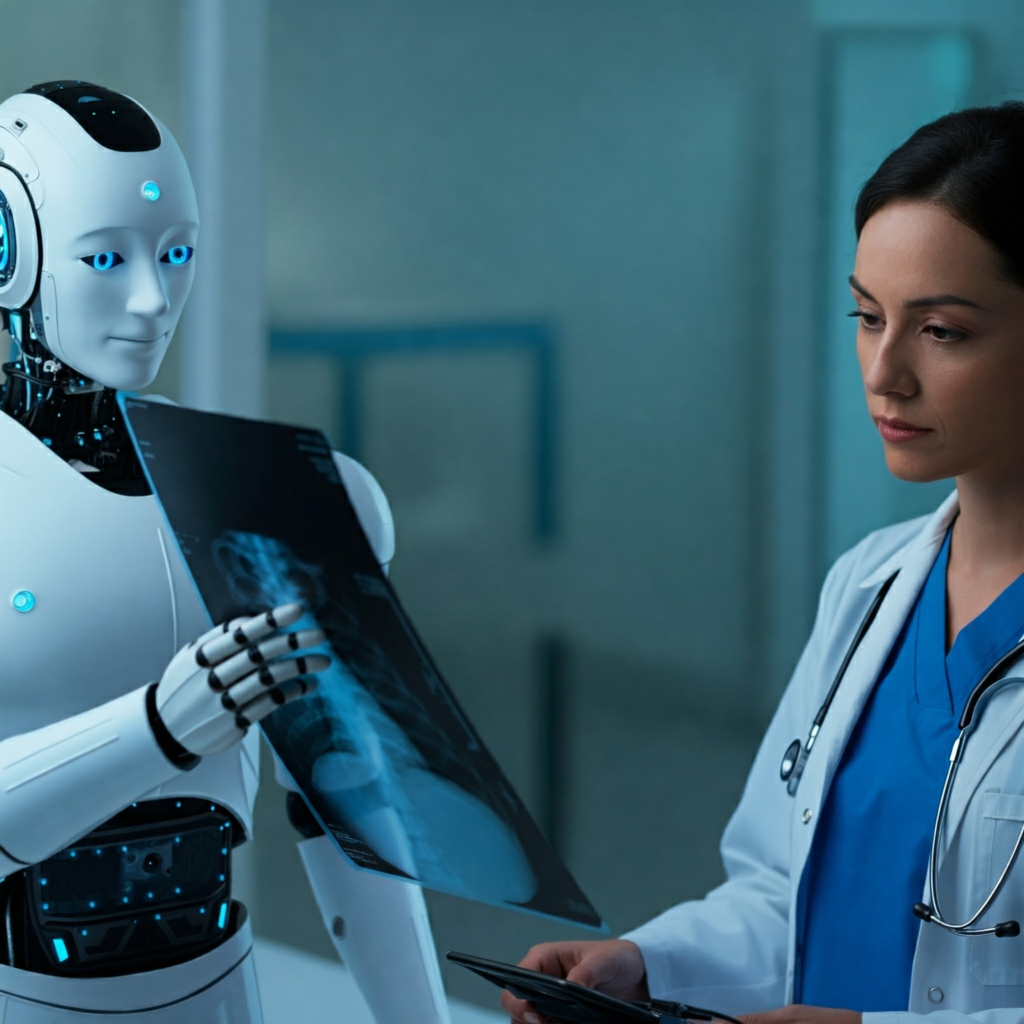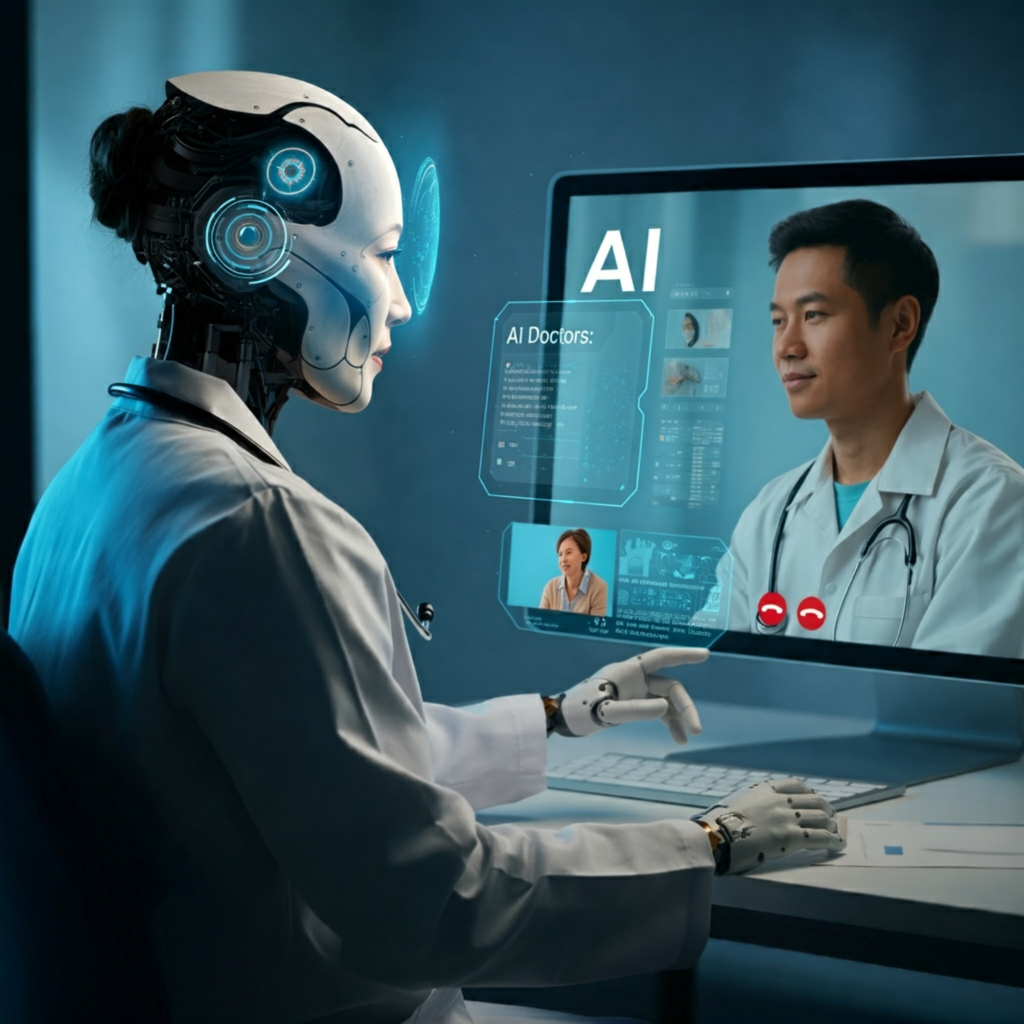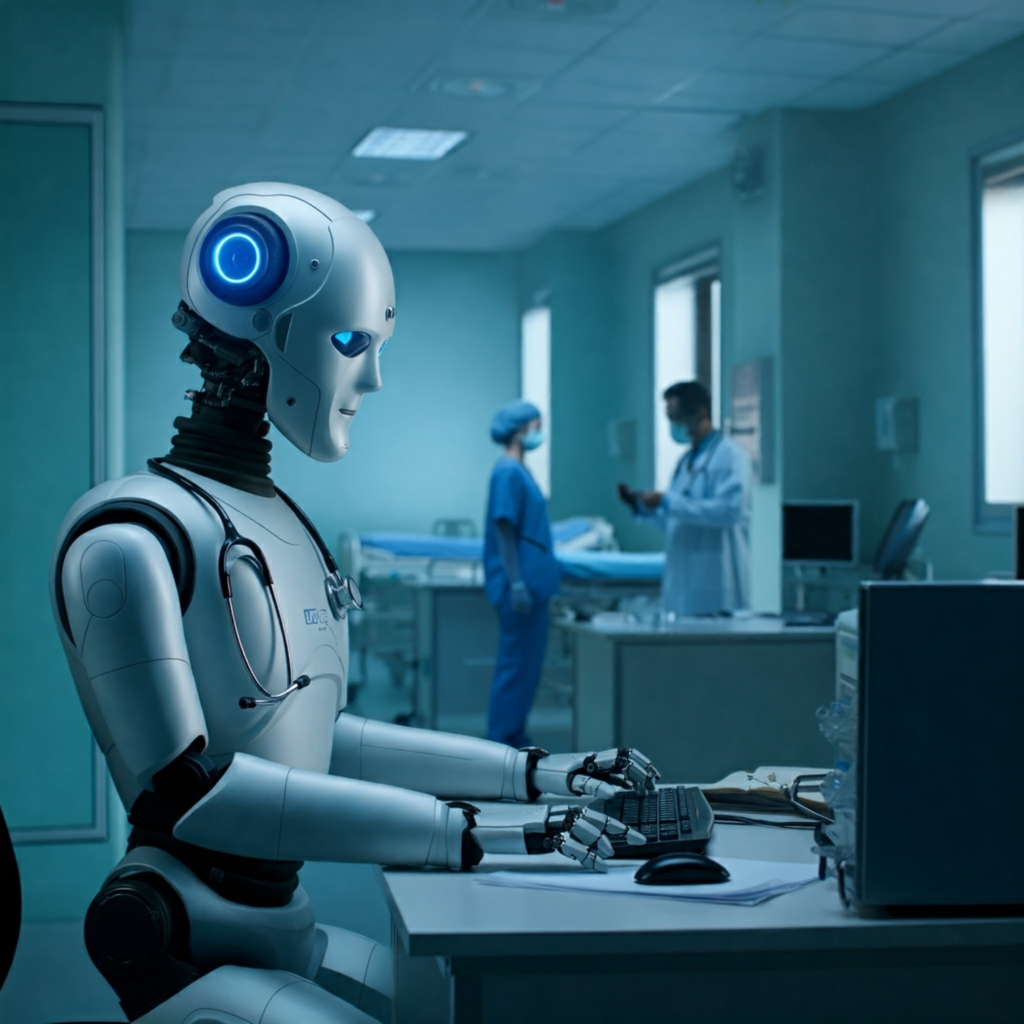AI Doctors: Are Human Physicians Becoming Obsolete?
The telemedicine sector is experiencing a period of rapid evolution, driven by technological advancements and shifting patient expectations. Artificial intelligence (AI) is emerging as a particularly transformative force, reshaping how healthcare is delivered and accessed remotely. This begs the question: are human physicians on the verge of obsolescence in the face of increasingly sophisticated AI-powered diagnostic and treatment tools? This article delves into the evolving landscape of telemedicine, the impact of AI integration, and ultimately assesses the future role of human physicians in this new era.
Telemedicine: A Reshaping Force in Healthcare
Telemedicine, broadly defined as the use of technology to deliver healthcare services remotely, has moved beyond its nascent stage to become a vital component of the healthcare ecosystem. Initially adopted for remote consultations and monitoring in rural areas, its applications have expanded dramatically. Today, telemedicine encompasses a wide spectrum of services, including:
- Virtual Consultations: Real-time video conferencing enables patients to connect with physicians for diagnosis, treatment plans, and medication management from the comfort of their homes.
- Remote Patient Monitoring (RPM): Wearable devices and connected health platforms allow continuous monitoring of vital signs, activity levels, and other health data, enabling proactive intervention and personalized care.
- Mental Health Services: Teletherapy and online counseling platforms provide accessible and convenient mental health support, addressing a significant unmet need.
- Teleradiology and Telepathology: Digital imaging and remote consultation enable specialists to review medical images and tissue samples, facilitating faster diagnosis and treatment planning.
- Chronic Disease Management: Telemedicine platforms support patients with chronic conditions through remote monitoring, medication reminders, and personalized education.
The growth of telemedicine is fueled by several factors, including increasing smartphone penetration, improved internet connectivity, rising healthcare costs, and a growing preference for convenient and accessible healthcare options. The COVID-19 pandemic further accelerated adoption, highlighting the crucial role of telemedicine in ensuring continuity of care during periods of restricted movement and social distancing.
AI Integration: Reshaping Telemedicine’s Potential
Artificial intelligence is rapidly transforming the telemedicine landscape, augmenting existing capabilities and creating entirely new possibilities. Key applications of AI in telemedicine include:
- AI-Powered Diagnostics: Algorithms can analyze medical images, patient records, and wearable sensor data to identify patterns and anomalies, assisting physicians in making faster and more accurate diagnoses.
- Personalized Treatment Plans: AI can analyze patient data to tailor treatment plans and medication regimens to individual needs and preferences, optimizing outcomes and minimizing adverse effects.
- Virtual Assistants and Chatbots: AI-powered chatbots can provide patients with 24/7 access to basic medical information, appointment scheduling, and medication reminders, freeing up human resources for more complex tasks.
- Predictive Analytics: AI algorithms can analyze patient data to predict future health risks and personalize preventive interventions, promoting proactive healthcare management.
- Drug Discovery and Development: AI is accelerating the process of drug discovery and development, leading to faster innovation and more effective treatments for various diseases.
Key Trends and Statistics:
- The global telemedicine market is projected to reach [Insert recent market size projection and source], growing at a CAGR of [Insert recent CAGR and source].
- Rising prevalence of chronic diseases, increasing geriatric population, and growing demand for personalized healthcare are key drivers of market growth.
- North America currently dominates the telemedicine market, followed by Europe and Asia Pacific.
- Increasing investments in AI healthcare startups and growing adoption of cloud-based telemedicine platforms are further fueling market expansion.
Recent Market News:
- [Insert 2-3 recent news items related to AI in telemedicine, e.g., partnerships, acquisitions, FDA approvals of AI-powered diagnostic tools, etc.]
AI Doctors: Are Human Physicians Becoming Obsolete? – A Summary
While AI undoubtedly holds immense potential to revolutionize telemedicine, the notion of human physicians becoming obsolete remains premature. AI is currently best viewed as a powerful tool that can augment and enhance the capabilities of human physicians, rather than replace them entirely.
Here’s why human physicians remain indispensable:
- Complex Decision-Making: While AI can analyze vast amounts of data and identify patterns, human physicians excel in complex decision-making that requires nuanced judgment, empathy, and consideration of individual patient circumstances.
- Emotional Intelligence: Establishing rapport, building trust, and providing emotional support are crucial aspects of patient care that AI currently cannot replicate. The human touch remains vital, particularly in delivering difficult diagnoses and navigating sensitive medical discussions.
- Ethical Considerations: The use of AI in healthcare raises complex ethical questions related to data privacy, algorithmic bias, and the potential for unintended consequences. Human oversight and ethical frameworks are essential to ensure responsible and equitable implementation of AI.
- Unseen Circumstances and Adaptability: Medicine frequently encounters unforeseen circumstances and requires adaptability that AI systems, trained on existing data, may struggle to handle. Human physicians are trained to handle the unexpected and adapt to novel situations.
The future of telemedicine likely involves a collaborative model, where AI and human physicians work together to deliver optimal patient care. AI can handle routine tasks, analyze data, and provide insights, allowing human physicians to focus on complex decision-making, patient interaction, and delivering personalized, empathetic care. This synergistic approach promises to enhance efficiency, improve outcomes, and expand access to quality healthcare for all.
The apprehension about AI replacing doctors is similar to previous technological advancements in other fields. Automobiles didn’t replace the need for human-driven vehicles entirely; they simply reshaped transportation. Similarly, AI is not replacing doctors; it’s reshaping how healthcare is delivered. The focus should be on integrating AI as a tool to empower physicians and improve patient care, rather than framing it as a replacement for human expertise and empathy. The future of medicine is not about AI versus humans; it’s about AI with humans.


